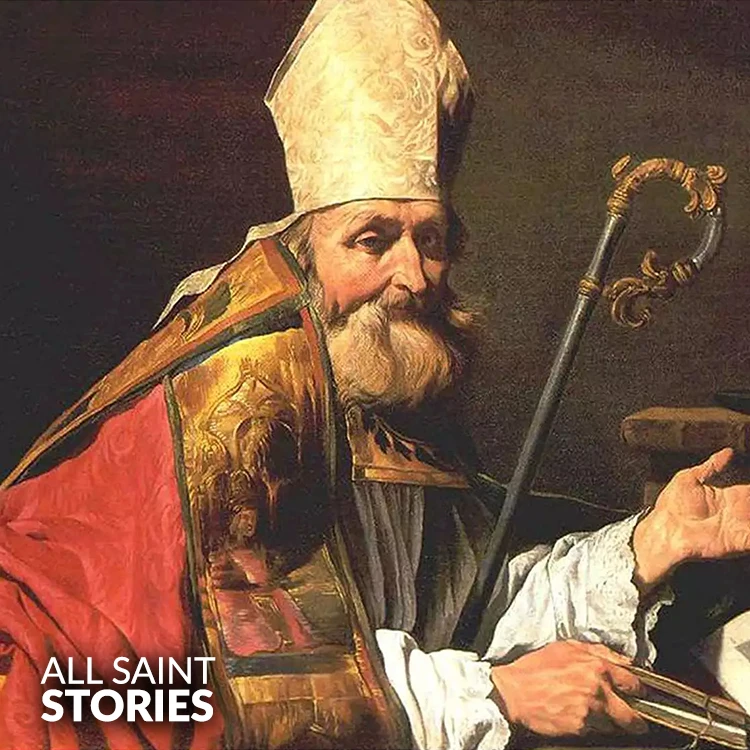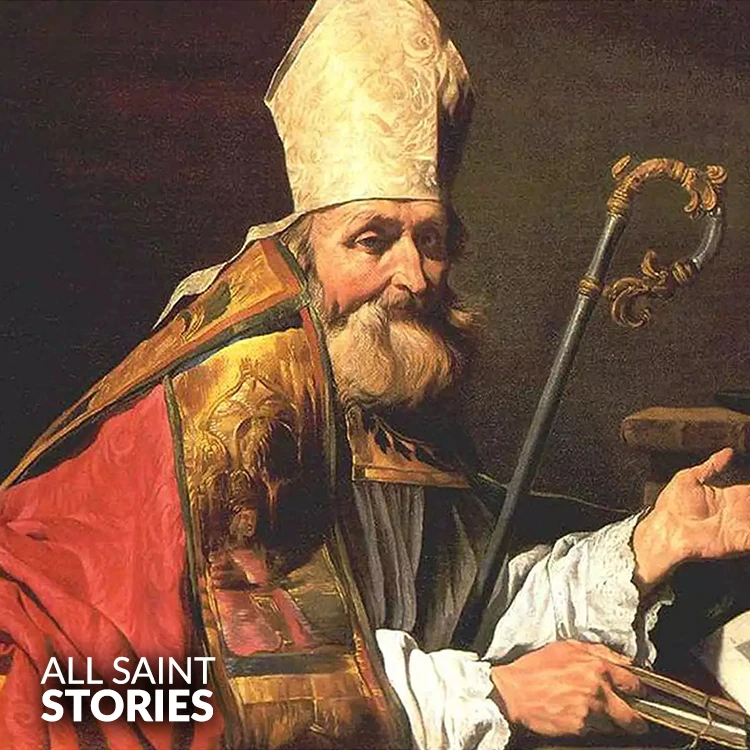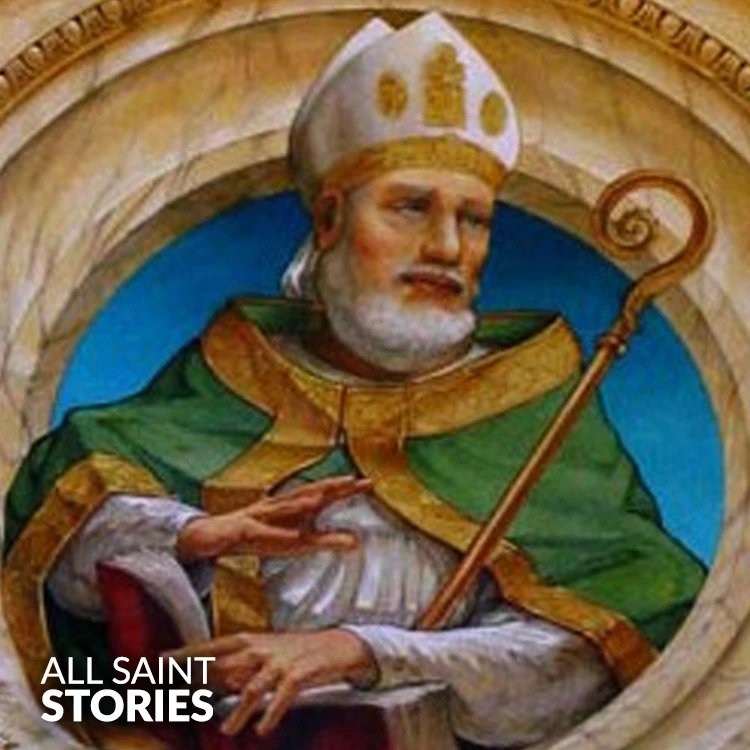Saint Ambrose, teacher of the faith and protector of the Church, pray for us. Intercede on our behalf, that we may live with the same wisdom and zeal for the Gospel that you exemplified in your life. Help us to grow in faith, hope, and charity, and to be faithful witnesses of Christ in all that we do. Through your intercession, may we be strengthened to follow God's will with courage and conviction. Amen.
ST. AMBROSE (DOCTOR OF THE CHURCH)
ST. AMBROSE (DOCTOR OF THE CHURCH)

St. Ambrose was a bishop, theologian, and Doctor of the Church known for his strong leadership and eloquent preaching. He played a key role in the conversion of St. Augustine and was a defender of Church authority against imperial power. As Bishop of Milan, he shaped early Christian doctrine and left behind important theological writings.
St. Ambrose, born in 340 in Trier, Germany, came from a distinguished Roman family. His father was a high-ranking official in the Roman government, and Ambrose received an excellent education in law and rhetoric. His early career was in civil administration, and he rose to become governor of Liguria and Emilia, with Milan as his seat of power. However, in 374, when the bishopric of Milan became vacant, the people, despite him being only a catechumen, demanded that he become their bishop.
Although reluctant at first, Ambrose accepted and was quickly baptized, ordained, and consecrated as Bishop of Milan. He dedicated himself to deep theological studies and became a strong defender of orthodox Christianity against the Arian heresy, which denied Christ’s divinity. He wrote extensively, producing hymns, theological treatises, and sermons that deeply influenced the development of Christian thought. His writings on the sacraments and the Holy Spirit remain vital in Christian theology today.
One of the most famous aspects of St. Ambrose’s legacy is his influence on St. Augustine of Hippo. Ambrose’s preaching and intellectual depth helped lead Augustine, a former skeptic, to convert to Christianity, eventually becoming one of the Church’s greatest theologians.
Ambrose was also a firm defender of Church authority. He famously confronted Emperor Theodosius I, requiring him to do public penance for ordering the massacre of 7,000 people in Thessalonica. This act reinforced the idea that even emperors were subject to divine and moral law.
St. Ambrose was known for his ascetic lifestyle, personal humility, and devotion to the poor. He introduced hymnody into the Western Church, composing some of the earliest Latin hymns still sung today. He passed away on April 4, 397, leaving a profound impact on Christian theology, ecclesiastical authority, and liturgical practice.
Video Not Found
The information you see here may be either accurate or might contain some discrepancies, as it is gathered from various sources. If you believe that any part of the details about this saint is incorrect or incomplete, we kindly invite you to share your suggestions or corrections with us. Your insights are invaluable in helping us ensure that we provide the most accurate and reliable information.
We encourage you to use the form on the left to submit any corrections or additional information you may have. Whether it's a small detail or a larger correction, we will carefully review your submission and update the information accordingly. Your contributions will not only help us maintain the integrity of the content but also benefit others who seek to learn more about this saint. We greatly appreciate your assistance in making our information more accurate and complete.
Please rest assured that your personal details will remain confidential, and your suggestions will be handled with the utmost care. Together, we can ensure that the information about this saint is as accurate and informative as possible. Thank you for your time and contribution!
If you have any suggestion about ST. AMBROSE (DOCTOR OF THE CHURCH)
Your suggestion will help improve the information about this saint. Your details will not be disclosed anywhere.
© 2025 Copyright @ www.allsaintstories.com



 English
English
 Italian
Italian
 French
French
 Spanish
Spanish
 Malayalam
Malayalam
 Russian
Russian
 Korean
Korean
 Sinhala
Sinhala
 Japanese
Japanese
 Arabic
Arabic
 Portuguese
Portuguese
 Bantu
Bantu
 Greek
Greek
 German
German
 Dutch
Dutch